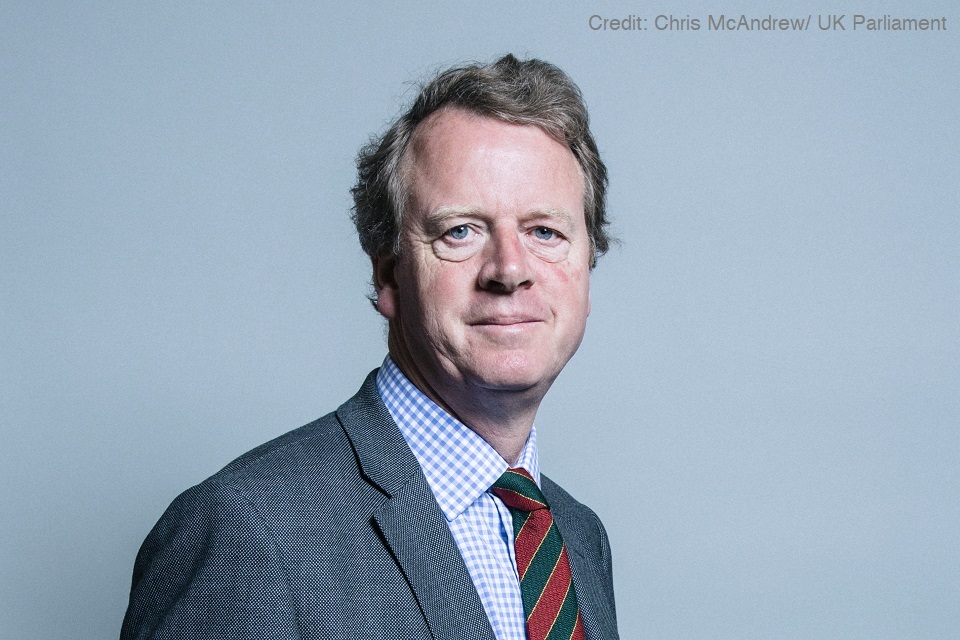Statement: Gender Recognition Reform (Scotland) Bill
Oral statement by Scottish Secretary Alister Jack to the House of Commons today in relation to the Gender Recognition Reform (Scotland) Bill

Mr Speaker, today I will make an order under section 35 of the Scotland Act 1998 preventing the Gender Recognition Reform (Scotland) Bill from proceeding to Royal Assent.
This Order will mean the Presiding Officer of the Scottish Parliament will not submit the Bill for Royal Assent.
This Government believes however that transgender people deserve our respect, our support and our understanding.
My decision is centred on the legislation’s consequences for the operation of reserved matters, including equality legislation across Scotland, England and Wales.
The Scottish Government’s Bill would introduce a new process for applying for legal gender recognition in Scotland.
The changes include reducing the minimum age a person can apply for a Gender Recognition Certificate from eighteen to sixteen, and removing the need for a medical diagnosis and evidence of having lived for two years in their acquired gender.
The Bill would amend the Gender Recognition Act 2004, which legislated for a single gender recognition system across the UK and which received a Legislative Consent Motion from the Scottish Parliament.
The approach taken in the Scottish Government’s Gender Recognition Reform Bill was the subject of intense debate in the Scottish Parliament.
A number of significant amendments were tabled right up until the end of the Bill’s passage.
And the Minister for Women and Equalities corresponded with and met with the Cabinet Secretary Shona Robison to discuss the UK Government’s concerns, before the Bill had reached its final stage.
Mr Speaker, I have not taken this decision lightly.
The Government has looked closely at the potential impact of the Bill and I have considered all relevant policy and operational implications, together with the Minister for Women and Equalities.
And it is our assessment that the Bill would have a serious adverse impact, among other things, on the operation of the Equality Act 2010.
Those adverse effects include impacts on the operation of single-sex clubs, associations and schools, and protections such as equal pay.
The Government shares the concerns of many members of the public and civic society groups regarding the potential impact of the Bill on women and girls.
The Bill also risks creating significant complications from having two different gender recognition regimes in the UK and allowing more fraudulent or bad faith applications.
The Government is today publishing a full Statement of Reasons, alongside the order, which will set in full the adverse effects the Government is concerned about.
Mr Speaker, I would like to address the claims put forward by those who would seek to politicise this decision and claim that this is some kind of “constitutional outrage” and you can hear them Mr Speaker, you can hear them.
The section 35 power was included in the Scotland Act, which established the Scottish Parliament.
This the first time the power has been exercised and I acknowledge that this is a significant decision.
The powers in Section 35 of the Scotland Act are not new, and this Government has not created them. They have existed as long as devolution itself.
And we should be clear that the power was included in the Act by the architects of devolution for a reason. Donald Dewar himself noted that the power struck an “important balance”.
The section 35 power provides a sensible measure to ensure that devolved legislation does not have adverse impacts on reserved matters, including on equalities legislation such as the Equality Act 2010.
This is not about preventing the Scottish Parliament from legislating on devolved matters but about ensuring that we do not have legal frameworks in one part of the UK which have adverse effects on reserved matters.
And we should be clear that this is absolutely not about the UK Government being able to veto Scottish Parliament legislation whenever it chooses, as some have implied.
The power can only be exercised on specific grounds - and the fact that this is the first time it has been necessary to exercise the power in almost twenty-five years of devolution emphasises that it is not a power to be used lightly.
In the instance of the Gender Recognition Reform (Scotland) Bill, I have concluded that the bill would have serious, adverse effects on the operation of the Equality Act 2010.
As I set out in my correspondence with the First Minister yesterday, I would prefer not to be in this situation.
The UK Government does all we can to respect the devolution settlement and to resolve disputes.
It is open to the Scottish Government to bring back an amended Bill for reconsideration in the Scottish Parliament.
So to conclude, Mr Speaker, I have set out to the Scottish Government that should they choose to do so, I hope we can work together to find a constructive way forward that both respects devolution and the operation of UK Parliament legislation.
And I commend this statement to the House.